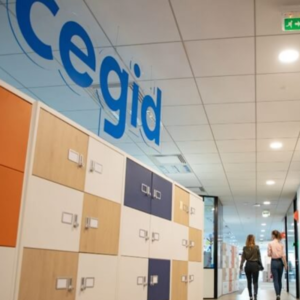Change is a constant in our lives, yet humans naturally tend to show aversion to anything that entails changes affecting their safety or comfort zone.
It’s hard to find someone who likes change, let alone promote it! However, that change-resistant mindset does little or nothing to help with continuing to grow professionally.
The environment in which we live is portrayed as both difficult and complex. While the former requires problem-solving, the latter on complexity implies knowing how to manage paradoxes, situations of uncertainty as well as confronting a world in which ambiguity has overtaken the certainties of the past.
Many of the large companies achieving success in the past have ended up disappearing due to their inability to foresee the future and to adapt to change. Such companies died because of their arrogance and navel-gazing, unable to heed to their customer’s pace.
A company changes when people change. However, when inertia outweighs the willingness to adapt to changing environments, both professionals and companies become run of the mill.
It’s necessary to transform the company into an organization with a culture open to innovation and that’s agile in the way it’s managed; one in which middle management is unafraid of making mistakes and able to learn from failure, to try again. It’s important to change the culture of control, so it becomes a culture of effort and of a real, and not fake, commitment.
Adapting to change isn’t bad, although sometimes doubting or resisting it can mean being too late.
The people we develop in our work in a company must portray an attitude of being a novice expert, that is to say, an attitude of lifelong learning that allows us to know what we are good at and what we need to improve. This attitude to learning comes with actions leading us to achieving results.
More and more companies are demanding professional T-shaped profiles, in other words, professionals who combine their expert knowledge in field with horizontal skills that allow them to arouse empathy with clients, collaborate in a team, manage constructive dialogues, both internally and with external agents, and above all, to be an example for others.
A culture open to innovation isn’t so much about technology, but about being broad-minded and ready to go further.
While complacency helps us perpetuate past behaviours, which we have transformed into habits and routines; humility primes us to feel we are expert learners, preparing us better for the future.
Attitude is what sets a professional apart from the average Jane or Joe. Plus, for those who are given to complaining, to clichés, to a sense of déjà vu, in order to get away from intricacy, I would recommend reading Viktor Frankl’s book, “Man’s Search for Meaning”, where the protagonist recounts his experience in four Nazi concentration camps, including Auschwitz.
One of the ideas developed in this book is that the one thing that no one can take from us is the freedom to choose our attitude, irrespective of the circumstances surrounding us, however difficult, painful or complex they may be.
The attitude we project to others for each scenario is the outcome of a personal decision. There are people who expect things to go well so that they can show a positive attitude; but actually, projecting a positive attitude when things don’t go so well, can prompt them to do better.
What about you, what attitude do you choose when facing change?
By: Lola Lotero






